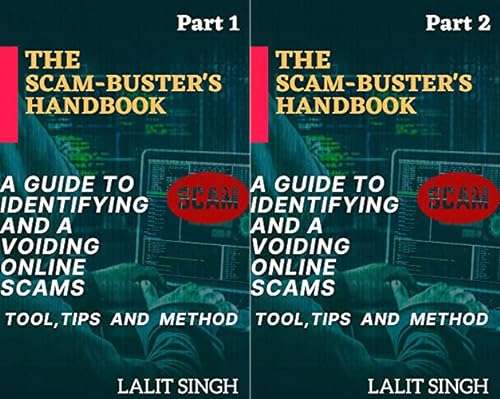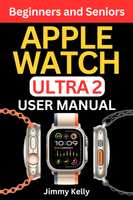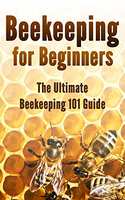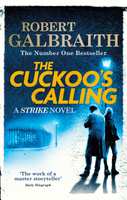
*
195°
Posted 1 day ago
THE Scam-Buster's Handbook (2 book series) Kindle edition
Shared by
Fantasy-Ireland Super Poster
Joined in 2006
922
1,386
About this deal
Chapter 1
Phishing Scams
Phishing scams are a type of online scam where attackers attempt to trick individuals into giving away their personal information such as login credentials, credit card numbers, or other sensitive data. Phishing scams usually involve sending a fraudulent email, text message, or website that appears to be from a legitimate source, such as a bank, social media platform, or e-commerce site.
The goal of these scams is to get the victim to click on a link, download an attachment, or enter their information on a fake website. Once the attacker has obtained the victim's sensitive information, they can use it for identity theft, financial fraud, or other malicious activities.
To avoid falling victim to phishing scams, it's important to always be cautious when clicking on links or entering personal information online. Some tips for staying safe from phishing scams include:
Check the sender's email address or phone number: Make sure the email or text message is actually from the sender it claims to be from. Attackers will often use email addresses or phone numbers that look very similar to the real thing.
Look for spelling and grammatical errors: Phishing scams often contain spelling and grammatical errors. Legitimate companies usually proofread their messages before sending them out.
Don't click on links in suspicious emails or text messages: If you receive an email or text message that asks you to click on a link, be cautious. Hover your mouse over the link to see the actual URL, and if it looks suspicious, don't click on it.
Check the website's security: If you're asked to enter personal information on a website, make sure it's a secure site. Look for the "https" at the beginning of the URL and the padlock icon in the address bar.
Be wary of urgent requests: Attackers often use urgent requests to pressure victims into acting quickly without thinking. If you receive an urgent request for personal information, take the time to verify its authenticity before responding.
Use anti-phishing software: Anti-phishing software can help protect your computer from phishing attacks by detecting and blocking suspicious emails and websites.
By following these tips and being cautious online, you can help protect yourself from phishing scams and keep your personal information safe.
Types Of Phishing Scams
Phishing is a type of cyber attack in which an attacker attempts to trick individuals into revealing sensitive information such as passwords, credit card numbers, or bank account details. Here are some common types of phishing scams:
Email phishing - This is the most common type of phishing scam, where attackers send emails that appear to be from a legitimate source such as a bank or an e-commerce site, asking the recipient to click on a link or provide personal information.
Phishing Scams
Phishing scams are a type of online scam where attackers attempt to trick individuals into giving away their personal information such as login credentials, credit card numbers, or other sensitive data. Phishing scams usually involve sending a fraudulent email, text message, or website that appears to be from a legitimate source, such as a bank, social media platform, or e-commerce site.
The goal of these scams is to get the victim to click on a link, download an attachment, or enter their information on a fake website. Once the attacker has obtained the victim's sensitive information, they can use it for identity theft, financial fraud, or other malicious activities.
To avoid falling victim to phishing scams, it's important to always be cautious when clicking on links or entering personal information online. Some tips for staying safe from phishing scams include:
Check the sender's email address or phone number: Make sure the email or text message is actually from the sender it claims to be from. Attackers will often use email addresses or phone numbers that look very similar to the real thing.
Look for spelling and grammatical errors: Phishing scams often contain spelling and grammatical errors. Legitimate companies usually proofread their messages before sending them out.
Don't click on links in suspicious emails or text messages: If you receive an email or text message that asks you to click on a link, be cautious. Hover your mouse over the link to see the actual URL, and if it looks suspicious, don't click on it.
Check the website's security: If you're asked to enter personal information on a website, make sure it's a secure site. Look for the "https" at the beginning of the URL and the padlock icon in the address bar.
Be wary of urgent requests: Attackers often use urgent requests to pressure victims into acting quickly without thinking. If you receive an urgent request for personal information, take the time to verify its authenticity before responding.
Use anti-phishing software: Anti-phishing software can help protect your computer from phishing attacks by detecting and blocking suspicious emails and websites.
By following these tips and being cautious online, you can help protect yourself from phishing scams and keep your personal information safe.
Types Of Phishing Scams
Phishing is a type of cyber attack in which an attacker attempts to trick individuals into revealing sensitive information such as passwords, credit card numbers, or bank account details. Here are some common types of phishing scams:
Email phishing - This is the most common type of phishing scam, where attackers send emails that appear to be from a legitimate source such as a bank or an e-commerce site, asking the recipient to click on a link or provide personal information.
Community Updates
Edited by a community support team member, 1 day ago
You may also like
Related Discussions
Related Categories










12 Comments
sorted byComplete lack of reviews?
Book overview just a wall of words from the first chapter?
Feels to me this is a scam. Probably run off by some generative algorithm and free now in the hope to get enough sales rank to sell some copies to the gullible and make some easy money. (edited)
A Trojan horse